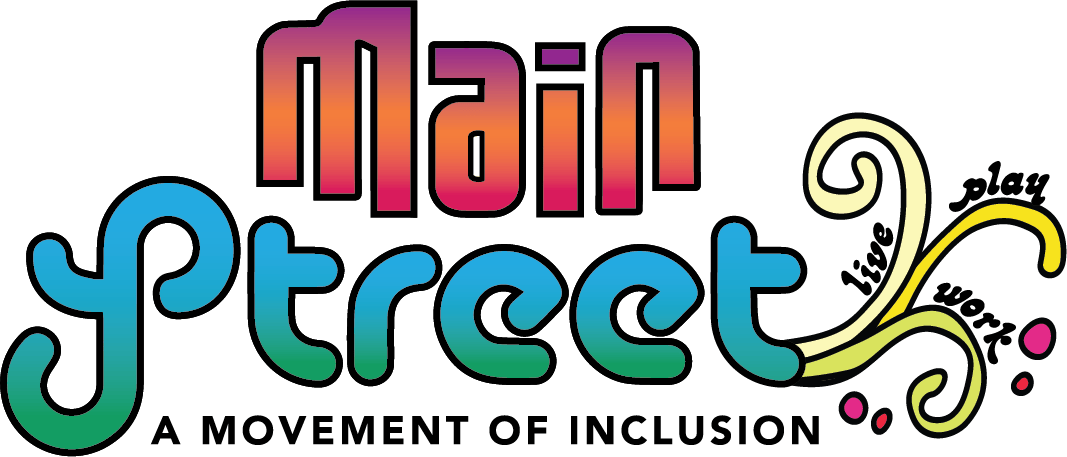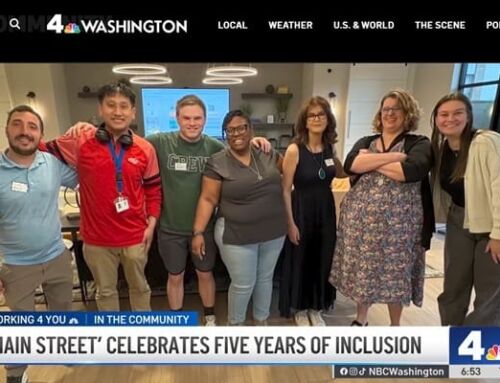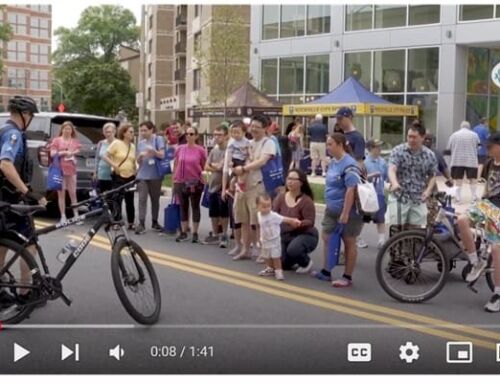THE WASHINGTON POST (2/12/2019) – Twelve years ago, after struggling to find a local school that was a good fit for their young son who had epilepsy and developmental disabilities, Jillian Copeland and her husband, Scott, started one. That school, the Diener School, continues today in Potomac, Md., serving children with special needs.
But as the Copelands’ son Nicol, now 19, prepared to enter adulthood, they found that, again, there was no living situation appropriate for his needs.
And so, again, they started one.
Ground broke in October on Main Street, a seven-story, 70-unit apartment building in Rockville Town Center that will reserve a quarter of its units for adults with disabilities.
It is part of a groundswell of similar projects around the country: As the number of children with developmental disabilities increases — the autism rate in particular has skyrocketed in recent decades — there are limited services when they become adults. Funding for many programs stops at age 21.
“We call it the cliff,” Jillian Copeland said. “Anyone who’s 21 loses all entitlements at that point — no more school, no more occupational therapy — and the parents equate it with having a preschooler at home.” Often, she said, they sit at home and play video games.
Waiting lists for group homes are long, and the homes are not a good fit for everyone. Living alone with a caregiver can be isolating and potentially dangerous: People with developmental disabilities have a higher risk of being sexually abused than the general population, according to the Arc, an advocacy organization.
Meanwhile, the need for housing solutions is growing. The CDC said in 2018 that approximately 1 in 59 children is diagnosed with autism spectrum disorder, and in the next 10 years an estimated 500,000 people with autism will enter adulthood, with almost 424,000 on waiting lists for residential services, according to Kim Musheno, vice president of public policy for the Autism Society of America.
Doing some research, Copeland found other parents around the country starting to come up with their own solutions and create variations on housing concepts. An apartment complex in Phoenix for people with autism holds weeknight social gatherings, barbecues and bingo games. Parents in rural Wisconsin are planning an apartment building that would integrate their developmentally disabled kids with residents who don’t have disabilities. In Dickerson, Md., the Madison House Autism Foundation provides residence on a farm, and the Faison Center in Richmond offers adult residency programs; both were founded by parents of children with autism.
Thinking about Nicol, who is one of four brothers and thrives when connected with mainstream society, the Copelands conceived of Main Street as a mixed community in the heart of a vibrant urban center.
The complex, projected to open in June, will consist of one-, two- and three-bedroom apartments, along with a cafe, a movie room, an art gallery, a teaching kitchen and a yoga and wellness center. The design will encourage hanging out, whether in a formal class or in a looser, nonstructured environment. The $30 million nonprofit organization will receive tax credits, along with private and public funding. The half-acre plot, across the street from the Rockville Metro, was sold to the couple by a friend; Copeland’s husband, a developer, waived his fees, as did the interior designers.
A quarter of the units will be for adults with disabilities, with built-in features such as rolling kitchen islands to accommodate wheelchairs, or a mechanism that can automatically put out a stove fire. Three quarters of the units (including the special-needs ones) will be affordable housing, with the rest at market rate.
Involvement in Main Street will not be limited to people who live there; nonresidents can become members and use the communal parts of the facility, and annual membership at this point costs $50 a person or $100 per family.
“It’s a hub, it’s a community center, it’s a gathering space,” said Copeland, who lives in Rockville. “Whether you have a disability or not, you might want to join.”
Although the complex is not yet signing up residents, more than 1,300 people have become members. Several who have helped organize it gathered this week with their children at the Copelands’ house. Some have been connected for years, through the shared experience of parenting kids with disabilities, kids who are now in their teens and 20s.
John Bogasky’s 26-year-old son, John, who has intellectual disabilities, lives on his own and has a job with the Smithsonian Institution. “But when he comes home from work he has nothing to do,” Bogasky said. “He lacks the executive functioning skills to organize his own activities, so it’s TV and videos every night.”
Most living options Bogasky has found for adults with disabilities seem isolating, with units scattered about instead of concentrated in one place. “They don’t have the spontaneity of walking down the hall and seeing their friend,” Bogasky said.
Bogasky’s son already lives in Rockville Town Center, so even if he is not accepted to live in the new facility, he will be able to participate in its events as a member. “At Main Street, every night he’s going to walk through his community and find someone to run into,” said Bogasky, who lives in Silver Spring.
Lois McCabe of Potomac sees the project as beneficial to both her 22-year-old son, Andrew, who has autism, and her 15-year-old daughter, Caitlyn, who is neurotypical and will help look after her brother as their parents age.
“I think if you don’t have this in your life, you really don’t know how it feels to be on the battlefield day in and day out and how exhausting it is,” McCabe said. If Andrew is already living in an integrated community that Caitlyn is also part of, “when it’s her time to take over and think about what’s best for him, she’s not going to be as drained.”
“It’s a huge relief,” she said. “It’s literally an exhale, to say my son will have a community, he will be a part of something.”
###
This article was written by Tara Bahrampour and originally posted on https://www.washingtonpost.com on 2/12/2019




